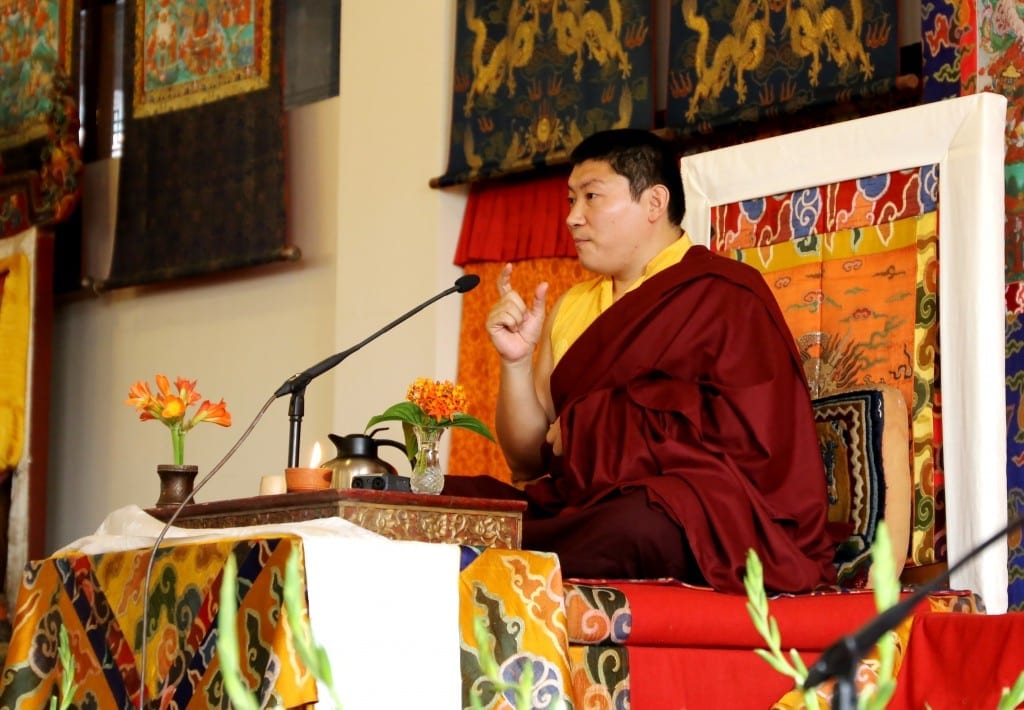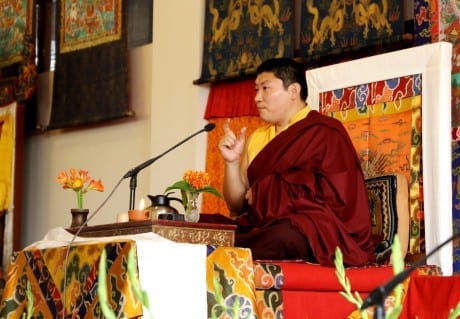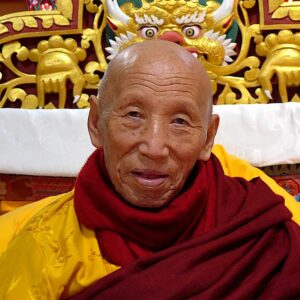Sincerity on the Path: Knowing What We Need to Transform
Phakchok Rinpoche here discusses the importance of knowing our own minds. We need to know what we have to transform–only then we can be mindful. Any practice we do–all of that is skillful means of the path of transformation.
But if we don’t know what we need to transform, then we may not be clear on what we are doing. We could either be experiencing Dharma or non-Dharma. And we might not know the difference!
Sincerity Means Overcoming Laziness
Until we understand that point, and experience that way, we will always have highs and lows. We are spoiled; that is our nature. Sometimes we want to practice, sometimes we don’t. We are lazy. In our mundane lives it is okay to be a little lazy. We need to really experience Dharma in our life. And if we think we don’t need to do formal practice because we are being mindful in daily life–that is a form of laziness.
When we do things insincerely, nobody else will notice that–but we know exactly in our hearts and minds that we are not sincere–right?
Sincerity and Karma
That is the karma that we talk about in Buddhism–that is what we cannot run from. Karma is based on mind, experience, intention and action. We need to bring the Dharma into our lives so that we know that our minds are clean and sincere. It is not enough to just sit for a hour meditation session. Beginning to be sincere–that is acknowledging where we are–what we’ve done wrong. It is okay–we can improve!
Rinpoche gives an example from his personal experience on how difficult it is to practice when we are physically sick. If we think about that –just imagine how it would be at the time of death. We need to really reflect on where we really are–and acknowledge that. That is the beginning of being sincere. When we do this we become genuine–decent people. If we try to set our goal too high, we may forget to be sincere. Some of us are not ready to accept the idea of enlightenment.
Dharma practice means, slowly, gently, kindly, calmly, be sincere–slowly accept more and become stronger.
That is a practitioner!
Reflection Question
How do you work with your own practice to make sure you are being sincere? Do you regularly reflect on where you are–right now? How do you distinguish between long-term goals and slow, gentle, sincere practice?











Responses